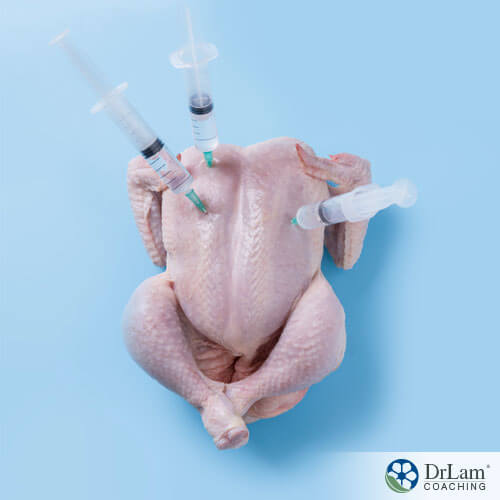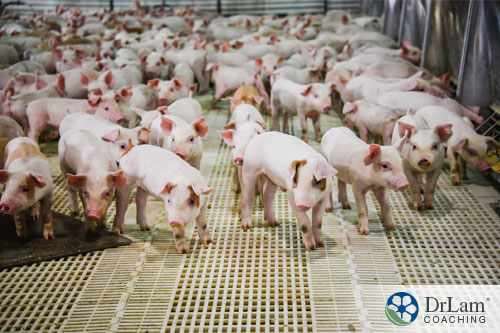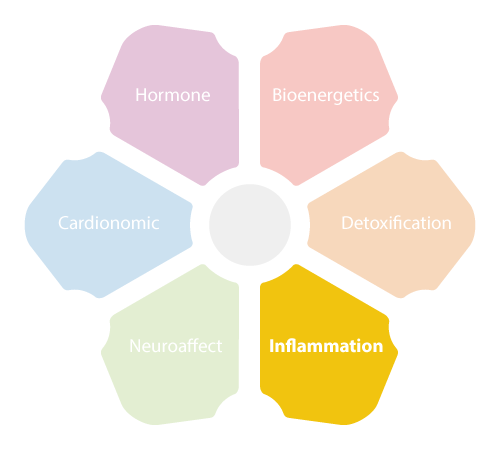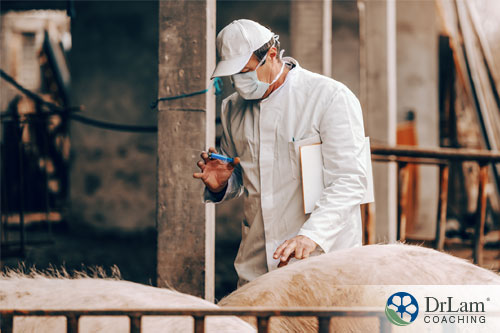 Antibiotics help your body fight against harmful bacteria, but their overuse can cause serious health issues in both humans and animals. The use of these drugs in food production is now adding to the problem. Recent research suggests that the overuse of antibiotics by the food production industry can increase the risk of antibiotic resistance in humans. According to the Center for Disease Control and Prevention (CDC), antibiotic resistance claims over 23,000 and 25,000 lives each in the E.U and U.S each year. Therefore, animal antibiotics and human health have now become a serious cause of concern.
Antibiotics help your body fight against harmful bacteria, but their overuse can cause serious health issues in both humans and animals. The use of these drugs in food production is now adding to the problem. Recent research suggests that the overuse of antibiotics by the food production industry can increase the risk of antibiotic resistance in humans. According to the Center for Disease Control and Prevention (CDC), antibiotic resistance claims over 23,000 and 25,000 lives each in the E.U and U.S each year. Therefore, animal antibiotics and human health have now become a serious cause of concern.
On a global scale, China and the U.S are ranked top users of antibiotics in food production. In the U.S, over 80 percent of the total antibiotics are used in agriculture alone. The larger portion is used on poultry and pigs, which receive up to five to ten times more antibiotics than sheep and cows.
So why are antibiotics used so extensively used on animals in the first place?
One reason could be the high demands placed on animals by the meat industry, which causes strain on the health of animals. Livestock farming is an intense process, particularly when the animals are raised for meat. To meet the rising demands of the meat industry, animals are given a very short recovery period in-between births which lead to compromised immune systems. Chickens and pigs are raised in crowded and confined space. This also causes prolonged stress on the animals and increases the risk of disease transmission.
Further, antibiotics are extensively used in higher amounts as growth promoters. Studies show that in humans, antibiotics eliminate the beneficial gut bacteria which increases the risk of obesity. However, in animals, this helps to increase the amount of meat they can be used for after slaughter, due to which several countries continue using antibiotics as growth promoters in livestock farming. The practice has recently been banned in the U.S where farmers can no longer use antibiotics as growth promoters. E.U and China have also banned this practice.
Finally, many livestock farms use antibiotics as preventives. Whether they are ill or not, animals receive antibiotics from birth, which adds to the problem.
Should you be really concerned about antibiotics in animals? Some experts claim that the use of antibiotics in food-producing animals is very low, thus hardly posing any serious threat to human health. However, other researchers argue that animal antibiotics and human health is a serious concern worldwide. They point out that, whether in animals or humans, antibiotics are fine when used sparingly for the treatment or prevention of infections. But overuse can cause these drugs to become less effective. This is because, with frequent exposure to antibiotics, bacteria develop resistance to them, which is a serious concern for public health.
So how are animal antibiotics and human health related? Excessive use of antibiotics in food-producing animals is causing an increase in drug-resistant bacteria, also referred to as “superbugs.” These bacteria, when passed to humans, can cause serious health issues that antibiotics cannot be used to remove. Estimates reveal that in the U.S alone, over two million people develop a drug-resistant infection annually. Some experts predict that by 2050, antibiotic resistance could be the cause of over ten million deaths annually worldwide surpassing cancer-related deaths.
Disruptive practices in livestock farming produce a negative effect on the animal’s microbiome creating a false need for antibiotics.
 For instance, piglets are separated from their mothers too early even before they develop healthy immunity and a matured gastrointestinal tract. Deprived of the natural antibodies found in mother’s milk, the animals have poor immunity and a high risk of gastrointestinal disease.
For instance, piglets are separated from their mothers too early even before they develop healthy immunity and a matured gastrointestinal tract. Deprived of the natural antibodies found in mother’s milk, the animals have poor immunity and a high risk of gastrointestinal disease.
Abrupt weaning has been found to disrupt the immune and gastrointestinal system of animals. For instance, piglets naturally wean when they are around 3 to 4 months. A piglet’s microbiome modifies during the suckling and weaning period. However, in the U.S, weaning is done on 17 to 28 days old piglets. Abrupt weaning involves a drastic change in environment and diet. This can cause a loss of microbial diversity, as well as an imbalance between the beneficial and harmful gut bacteria in the animal, thus creating a need for antibiotics. Further, livestock animals including lambs, piglets, and calves have post-weaning diarrhea, thus requiring antibiotics. Genomic studies show that after receiving antibiotics, piglets had a considerable increase of Escherichia coli in the small intestine. E. coli bacteria contribute to half of all the piglet deaths worldwide.
The environment plays a crucial role in the development of a diverse and healthy microbiome in animals. In farming, animals are raised in unhygienic and confined spaces. Studies show that the simple presence of straw in the environment can positively influence a pig’s microbiome. It helps reduce the risk of developing respiratory and porcine syndrome.
The microbiome of poultry is even more heavily affected by farming practices. This is because gut colonization in chicks starts early, when the egg is developing in the mother’s oviduct. During this process, the chicks absorb the required microorganisms from the mother, as well through the tiny pores of the eggs during brooding. Modern farming involves cleaning the eggs, which remove the beneficial bacteria. Further, the hatched chicks are separated from their mothers and have no access to the outdoors. Therefore, the chicks cannot access the bacteria necessary to develop a healthy microbiome and immune system.
As the hatched chicks are deprived of outdoor environment they also do not get any chance to interact with adult chickens. Further, the chicks are grown in crowded conditions that can cause heat stress providing a suitable environment for Salmonella and E. coli infections. Therefore, the birds are treated with antibiotics to help fight infection.
With excessive use of antibiotics on livestock to prevent infection and promote growth, there is an increase in antibiotic-resistant bacteria within the animals. When transmitted to humans, antibiotic-resistant bacteria can cause serious health problems. This is where animal antibiotics and human health come into the picture.
What does the use of antibiotics in animals have to do with human health? Firstly, each time an antibiotic is used, whether in animals or humans, it increases the risk of developing drug-resistant bacteria. It is important to safeguard our ability to use antibiotics to treat infections in the future.
This is how animal antibiotics and human health are interlinked. The resistant bacteria from animal antibiotics can affect humans, creating dangerous, persistent infections and more.
Here are some of the potential dangers that antibiotic-resistant bacteria in animals can create for human health:
In the U.S alone, around two million people every year are infected with bacteria resistant to one or two antibiotics used to treat infections. Antibiotic-resistant bacteria in animals, when transmitted to humans, can cause unpleasant symptoms, thus exerting stress on the body.
 The NeuroEndoMetabolic (NEM) Stress Response System is your body’s natural stress defense mechanism. It is a delicate network of various organs and six circuits, including the Inflammation circuit, which functions in close coordination to help fight stress. During stress, the NEM signals your adrenal glands to secrete the anti-stress hormone cortisol. However, constant stress can overburden your adrenals. As a result, they are no longer in a position to secrete adequate cortisol. This affects your body’s natural stress-fighting ability which can lead to adrenal fatigue.
The NeuroEndoMetabolic (NEM) Stress Response System is your body’s natural stress defense mechanism. It is a delicate network of various organs and six circuits, including the Inflammation circuit, which functions in close coordination to help fight stress. During stress, the NEM signals your adrenal glands to secrete the anti-stress hormone cortisol. However, constant stress can overburden your adrenals. As a result, they are no longer in a position to secrete adequate cortisol. This affects your body’s natural stress-fighting ability which can lead to adrenal fatigue.
When you frequently experience extreme fatigue along with symptoms of anxiety, brain fog, low energy levels, insomnia, difficulty in waking up, constipation, stubborn weight gain, low concentration levels, or cravings for salty and fatty foods, then you might have Adrenal Fatigue Syndrome (AFS).
The inflammatory circuit of the NEM is comprised of the gut, microbiome, and immune system. Imbalance of this circuit can lead to recurrent infections, frequent illness, chemical and food sensitivities, autoimmune disorders, leaky gut, musculoskeletal pain, and a prolonged healing period. When you observe from the point of animal antibiotics and human health, antibiotic-resistant bacteria in animals can transmit to humans, causing an imbalance of the Inflammation circuit. The bacteria can weaken the immune system, alter the microbiome, and affect gut health.
There are several ways in which antibiotic-resistant bacteria in animals can transmit to humans.
The first pathway of disease transmission is through direct contact between animals and humans. For instance, farmers are at high risk of getting Livestock-Associated methicillin-resistant bacteria Staphylococcus aureus (LA-MRSA). LA-MRSA is not as dangerous as Hospital-Associated MRSA, as it is adapted for animals and does not transmit as easily between humans. However, there is always a risk for the bacteria to transform and adapt to humans as well. One Danish study revealed that over 40 percent of commercially sold pork contained methicillin-resistant bacteria Staphylococcus aureus (MRSA). Further, a review of existing studies on the pork production chain showed that the slaughter process plays a critical role in the transmission of MRSA from farm to fork. MRSA is also a dangerous bug that, if found in humans, requires further workup as it has been known to be very sticky bacteria, tending to stick to heart valves and mechanical devices.
Animal antibiotics can also affect human health through the intake of antibiotic residue on meat. However, the level of antibiotics in animals is a hundred times lower after the withdrawal period. It is the phase when antibiotic treatment is stopped to allow the drug to clear from the animal’s system before they are milked or culled for meat. When an animal carries resistant bacteria, it can transmit to humans through meat that has not been handled or cooked properly. Further, antibiotic-resistant bacteria in meat may transfer antimicrobial resistance to human bacteria. However, high cooking temperatures and proper food handling reduce this risk.
Thirdly, consuming foods sprayed with animal fertilizer containing resistant bacteria also increases the chances of encountering these dangerous bugs. A study showed that people living close to areas where crop fields are sprayed with pig manure are at a higher risk of developing infections from resistant bacteria. Upon transmission, the bacteria reside in the human gut and spread to other people.
Thus, animal antibiotics and human health are closely connected. Minimizing the occurrence of antibiotic-resistant bacteria in animals is important for reducing the associated potential health risk on humans. To achieve this, the livestock farming industry needs to gain control of the situation through changing farming practices and the strategic utilization of animal antibiotics. The use of antibiotics in animals should be only for the treatment of infections, rather than for disease prevention or as a growth promoter.
 Whether in humans or animals, antibiotics should only be used for stopping infections. Overprescription of antibiotics raises the risk of drug resistance in humans, which is now a major health issue worldwide. The use of antibiotics in animals is further adding to the problem. Animal antibiotics and human health can be largely interrelated. While some experts believe that the use of antibiotics in animals is too low to affect humans, there are studies showing the negative effects of animal antibiotics on human health.
Whether in humans or animals, antibiotics should only be used for stopping infections. Overprescription of antibiotics raises the risk of drug resistance in humans, which is now a major health issue worldwide. The use of antibiotics in animals is further adding to the problem. Animal antibiotics and human health can be largely interrelated. While some experts believe that the use of antibiotics in animals is too low to affect humans, there are studies showing the negative effects of animal antibiotics on human health.
Livestock farming involves intensive practice such as breeding and raising the animals in unhygienic and confined space, separating the newborn animals from their mothers, not giving adequate recovery periods between births, and abrupt weaning. This places the animals under extreme stress, leading to compromised immunity and poor gastrointestinal health, and thus paving the path for the need for antibiotics which otherwise could have been avoided.
The overuse of antibiotics in animals raises the risk of drug-resistant bacteria. Antibiotic-resistant bacteria in animals can transmit to humans through direct contact, consumption of antibiotic residue in meat, and eating foods sprayed with animal manure fertilizer containing antibiotic-resistant bacteria. Further, resistant bacteria in animals may transfer antimicrobial resistance to human bacteria. It is important not to use antibiotics in animals as growth promoters and prevention of disease. In reference to animal antibiotics and human health, using antibiotics for the treatment of active infections only is essential for safeguarding the health of both humans and animals.
© Copyright 2020 Michael Lam, M.D. All Rights Reserved.
Animal antibiotics and human health can be interlinked. There are risks of antibiotic-resistant bacteria in animals transmitting to humans. Those with AFS often have a weakened immune system, and they could be much more vulnerable to “superbugs” created by the overuse of antibiotics.
